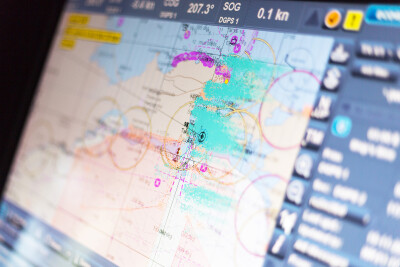Without the Jones Act, thousands of foreign-flagged vessels would enter U.S. waterways and the Coast Guard and U.S. Customs and Border Protection (CBP) would be overwhelmed. That’s one of the messages that Michael Hebert of the CBP’s Jones Act Division of Enforcement (JADE) delivered to about 200 attendees at yesterday’s Offshore Marine Service Association quarterly meeting in New Orleans.
JADE was created in an effort to present a uniformed approach on issues involving the Jones Act, working in partnership with industry stakeholders in the enforcement of the act, along with all other coastwise trade laws.
“The Jones Act is there to protect the maritime interests of the U.S.,” said Hebert, who is based in New Orleans. “The industry has been responding to this, saying we’ve been needing it.”
Three of JADE’s major goals are establishing training to DHS agencies and outreach to industry parties, providing uniformity across CBP and the industry regarding coastwise trade, and offering information and guidance. “Our federal laws extend to the seas,” said Hebert. “CBP enforces coastwise laws and the Coast Guard determines vessel eligibility for coastwise endorsement and issues certificates of documentation.”
JADE’s field office in New Orleans is set up to assist CBP and industry partners with issues concerning coastwise trade and the goal of being a clearinghouse for all coastwise trade issues.
The new division is staffed by a team of Jones Act experts to assist industry partners with questions and concerns about coastwise trade. All formal ruling requests will continue to be forwarded to Regulations and Rulings, Office of Trade.
To report a Jones Act violation, go to jonesact@chp.dhs.gov.





